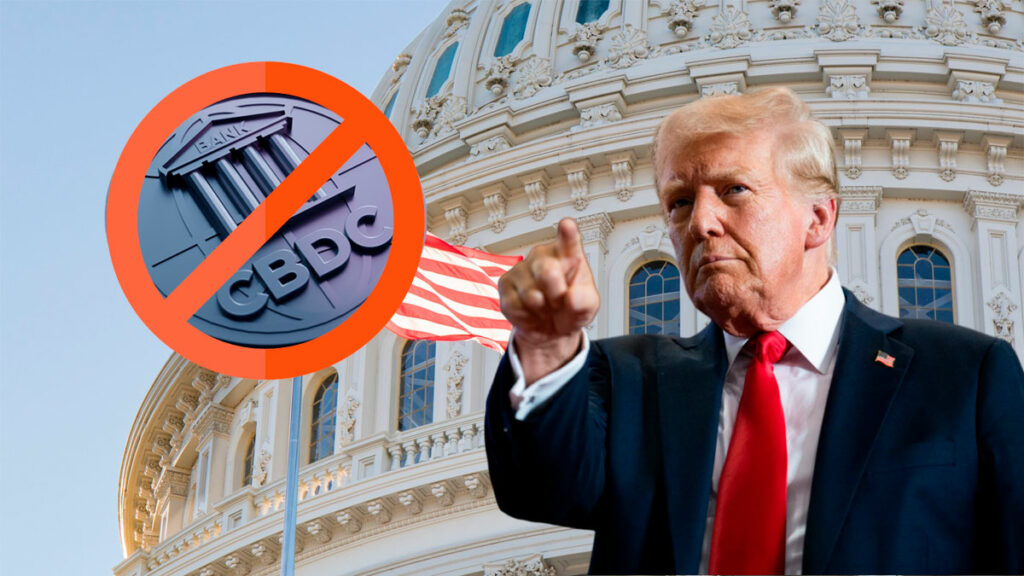TL;DR
- President Trump may sign an executive order to halt US CBDC development, citing financial privacy concerns.
- The crypto community supports this move, advocating for decentralized digital assets like Bitcoin instead.
- Lawmakers are pushing for stablecoin regulation, and a White House Crypto Council is expected to be established.
Recent reports suggest that President Donald Trump may soon sign an executive order to halt the development of a US CBDC, commonly referred to as the Digital Dollar. This move aligns with Trump’s campaign promises to protect Americans from what he describes as potential “government tyranny” through CBDCs.
🚨NEW: In addition to signing an executive order establishing a crypto council, #crypto policy leaders are also expecting Trump to sign an EO banning the creation of a CBDC. Unclear when exactly those EOs may be signed. https://t.co/MlpZD9AYcE
— Eleanor Terrett (@EleanorTerrett) January 21, 2025
Concerns Over Financial Privacy
The primary concern driving this potential executive order is the issue of financial privacy. Critics argue that a government-controlled digital currency would grant authorities unprecedented access to individuals’ financial data, effectively allowing them to monitor and control every transaction. This level of oversight is seen as a significant threat to personal privacy and financial freedom.
Crypto Community’s Support

The crypto community has been vocal in its opposition to the development of a US CBDC. Industry leaders, including Michael Saylor and platforms like Coinbase, have advocated for the establishment of a strategic Bitcoin reserve instead. They argue that decentralized digital assets, such as Bitcoin, offer a more secure and private alternative to government-controlled currencies.
Legislative Push for Stablecoins
In place of a CBDC, lawmakers from both parties are advancing legislation to regulate private stablecoins. The House of Representatives is considering the Clarity for Payment Stablecoins Act of 2023, introduced by Rep. Patrick McHenry.
A joint effort in the Senate, led by Republican Cynthia Lummis and Democrat Kirsten Gillibrand, has resulted in the creation of the Lummis-Gillibrand Payment Stablecoin Act. These bills aim to provide regulatory guardrails for the stablecoin industry, which many see as a more viable and privacy-respecting alternative to a CBDC.
Formation of a White House Crypto Council
Further, the Trump administration is expected to establish a White House Crypto Council, composed of approximately 20 key figures from the cryptocurrency sector.
This council would advise on digital asset policies, help craft a crypto-friendly regulatory environment, and work closely with Congress on relevant legislation. David Sacks has reportedly been appointed as the White House’s crypto czar, signaling a commitment to fostering innovation in the crypto space.
As the industry anticipates these policy changes, the market has responded positively. Bitcoin has seen significant price surges post-election, reflecting the market’s optimism and hope for a more crypto-friendly US under President Donald Trump.










